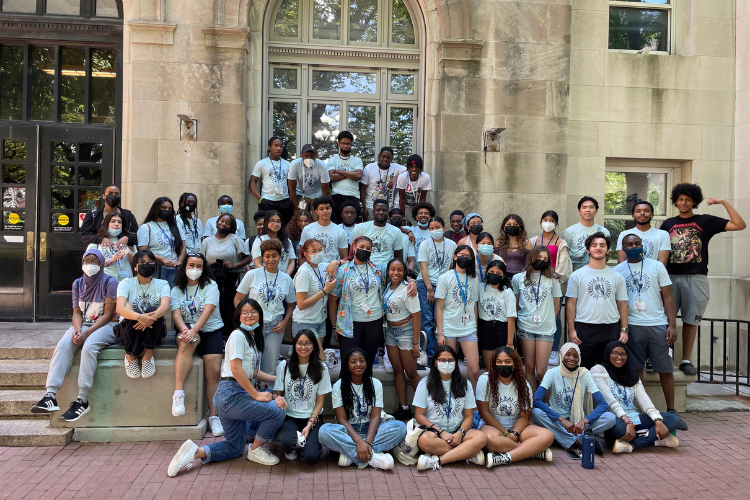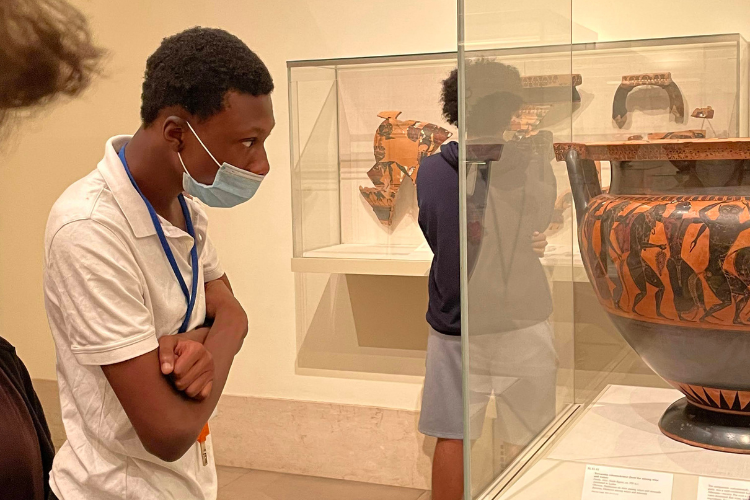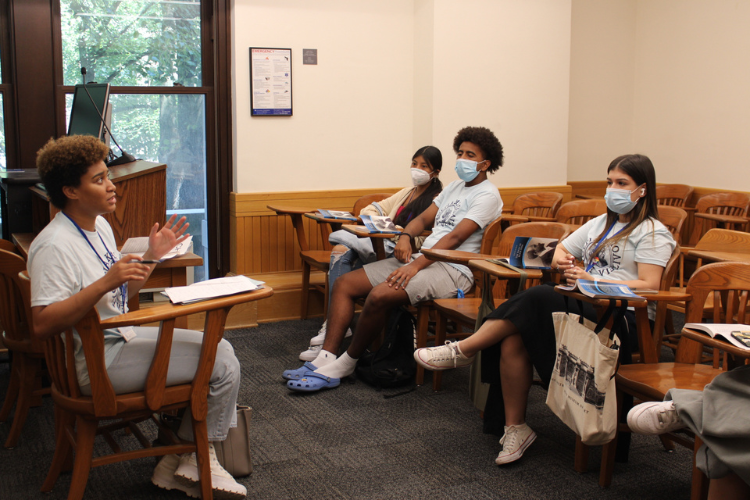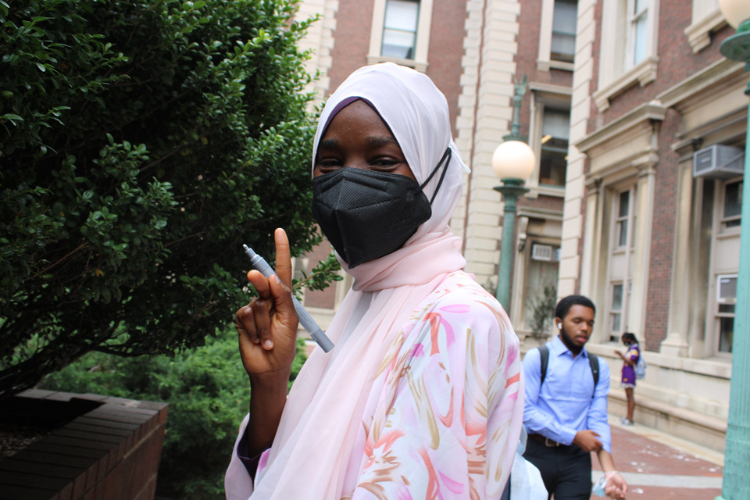Freedom and Citizenship: High Schoolers in Upper Manhattan Elevate Their Voices for Change
Columbia University’s Freedom and Citizenship program empowers youth to use civic engagement as a means for change.

From the visionaries at the forefront of the Student Nonviolent Coordinating Committee who fought for racial justice during the civil rights era, to the children who stood in solidarity against gun violence at the March for Our Lives demonstration in Washington, D.C. in 2018, youth-led movements have historically moved the needle of social change forward. Columbia University’s Freedom and Citizenship program is empowering the next generation of leaders to use civic engagement as an avenue to drive change locally and globally.
At the end of July, the program—which was founded by Columbia’s Double Discovery Center and the Center for American Studies in 2009—wrapped up its four-week, on-campus seminar where students learned about the history of philosophy, social impact, and how to master the art of debate under the guidance of professors. We spoke to four students who were part of the 2022 cohort about their summer experience at Columbia, social issues they’re passionate about addressing within their communities, and their future aspirations.
Promise Mensah, 17, Harlem

What inspired you to get involved in the Freedom and Citizenship program?
I wanted to challenge myself and learn what campus life was like. I wanted to get a good experience and learn what being in a lecture is like, how I see professors, and the language they use to teach. I wanted to get that college experience so when I go to college, I can be more confident within myself.
What was the biggest lesson that you learned from the philosophy seminar?
Old texts apply to modern-day life. It was really surprising. There are these big questions that have not been answered. I’ve also learned that in society there will always be a problem and the problems will never end, but I feel like as human beings, as a people, and as a community, we have to come together to sort out these problems and ensure we minimize them.
What is one social issue you’re passionate about addressing?
I live in Harlem, so I’m used to seeing a lot of homeless people on the streets. I want to help them. Through education, I want to learn about policies that will help give me the answers to help these people. Not only in America, but in other countries, especially in Africa, there is a lot of poverty. I want to work on economic stability and the redistribution of wealth.
Daisha Perez, 16, Bronx

What motivated you to join the Freedom & Citizenship program?
I wanted to challenge myself and learn about philosophy. I didn’t know what it was until I got into the program and studied how we became a society today. I liked getting to meet new people and socialize. I’m shy, so I typically just keep to myself. I started to break out of my shell and make friends.
What was the biggest takeaway from your summer learning experience?
Everyone has their own opinion and it’s okay if your opinion is different from everyone else’s. I remember one time during the seminar when everyone agreed with the same idea and I didn’t. I didn’t want to speak out about it because I was scared and I didn’t want to go back and forth. I learned you have to be ready to argue your opinion because there is always going to be someone who will check it.
Can you share your thoughts on the importance of civic engagement and community impact? What is one social issue you’d like to bring attention to?
Just because an issue doesn’t directly affect you, does not mean you shouldn’t talk about it or voice concern. I’m passionate about access to abortion. You should have the right to do whatever you want with your body.
Jolie Camara, 19, Harlem

What does civic engagement mean to you?
I believe we all have a duty to empower our community. Saying “this problem today does not apply to me so I’m not going to talk about it or voice my thoughts about it” is wrong. Even though today it doesn’t apply to you, you don’t know if tomorrow it will apply to you, your family, or friends. It’s our duty to voice out on those subjects and try to bring equality to everybody. It’s a part of our social contract to help each other. It’s human nature to have empathy. Sometimes we can be self-centered. We have to let those ideas go and come together and help each other. In order for there to be unity, everyone has to get involved.
If there was one thing that you could change within your community, what would it be?
We have to respect boundaries. I cannot go out and do whatever I want without thinking about others. You’re setting the example for kids who are looking at you. It’s all about respect. We have to respect each other’s boundaries and respect the community as well.
What is one global issue you’d like to change?
In Mali, there is still a lot of poverty. There are kids my age and below who are not going to school. I’m lucky to have this opportunity. My mom came here when I was one month old and worked to bring me and my brother here. We have the opportunity to study here and have a different education. I want to build an orphanage for young kids out there and try to give them a better education. Not every girl has the chance to go to school. Everybody should have the right to education.
Angelyn Juntamaya, 16, Harlem
What sparked your interest in the Freedom and Citizenship program?
I wanted to challenge myself and improve my reading and writing. This program challenged me and made me more sociable as I’m usually shy. The program has shown me where I want to go and how far I want to go.
What advocacy efforts would you lead on a national or global level?
I want to help my community and the world in many aspects. I want to help address climate change, abortion rights, immigration, and homelessness because those issues not only have a big impact on our communities, but on our world. I’m passionate about immigration. I care about people who immigrate here for a better life and a better opportunity. I want to help immigrants who have been here for a long time and are not getting treated fairly.
If there is one thing you could change within your neighborhood, what would it be?
I would like for my community to be more collaborative. Communicate, collaborate, and show respect.
In the fall, the students will lead their own year-long civic leadership projects. Check out the Freedom and Citizenship website for more information.